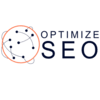Boost Your Business With Small Business SEO
Small business SEO is all about making your website more visible on search engines like Google. This helps attract potential customers who are looking for your products or services. Think of it as improving your online storefront so more people can find you.
Small Business SEO vs. Local SEO: What’s the Difference?
Both small business SEO and local SEO aim to improve your online visibility. However, they focus on different aspects. Local SEO is about targeting customers in your specific geographic area, while small business SEO is about reaching a broader audience, regardless of location.
Why SEO is a Game-Changer for Small Businesses
SEO can significantly boost your small business’s success. By optimising your website, you’ll attract more potential customers, increase your online visibility, and build trust in your brand. This can lead to higher sales, improved customer satisfaction, and long-term growth.
More Web Traffic Means More Customers
When your website appears higher in search engine results, you’ll attract more visitors. This is crucial for online stores, but it can also benefit businesses with physical locations. More people online often means more people visiting your shop in person.
Show Up Higher, Get More Clicks
Improving your website’s ranking on search engines means more people will see it. Think of it like being at the front of the line for a popular store. The higher you are, the more likely people are to notice and visit you.
Make Your Website Easier to Use
SEO isn’t just about ranking higher. It also involves making your website more user-friendly. By organising information clearly and using helpful descriptions, you’re not only improving your SEO but also providing a better experience for your visitors.
SEO Tips for Small Businesses
Improving your SEO takes time and effort, but even small businesses can see results. By following these simple steps, you can boost your online visibility and attract more customers.
How to Create a Quality Website
A quality website should be easy to use, visually clear, and represent your brand well. It should provide the information or solutions that visitors need. This applies to any type of business, and it’s also important for search engine optimization (SEO). A good website helps users find what they are looking for quickly and efficiently.
Track Your Website’s Success with Google Analytics
To understand how your website performs, start by setting up Google Analytics. This free tool provides valuable insights into your website traffic, visitor behaviour, and more. Follow these steps to get started:
- Create an account: Set up a Google Analytics account and customise your settings.
- Add a property: Define your business by adding a property to your account.
- Add a data stream: Connect your website’s URL to Google Analytics.
- Set up data collection: Use tags to track website activity.
- Configure additional settings: Optimise your data collection for better insights.
Boost Your Local Visibility with a Google Business Profile
A Google Business Profile is a free tool that helps customers find your business on Google Search and Maps. To get started, follow these steps:
- Sign up: Create a Google Business Profile account.
- Verify your business: Confirm your business information through Google’s verification process.
- Update your details: Ensure your business information is accurate and complete.
Basic Keyword Research
Keyword research involves finding the words and phrases people use when searching for your business online. By including these keywords on your website, you can improve your visibility in search engines. Many tools, both free and paid, can help with this. One free option is Google Keyword Planner, which helps you find and target relevant keywords. A good keyword strategy balances how competitive a keyword is with how often people search for it each month.
Optimise Your Website’s On-Page Elements
On-page SEO focuses on optimising individual web pages to improve their search engine rankings. Key elements to consider include:
- Page URLs: Keep URLs simple, short, and keyword-rich.
- Page titles: Use clear, descriptive titles with your main keyword.
- Headers: Structure your content with relevant headers that include keywords.
- Alt text: Add descriptive alt text to images for accessibility and SEO.
- Meta descriptions: Write compelling meta descriptions that entice clicks and include keywords.
- Content: Create high-quality, keyword-rich content that is engaging and visually appealing.
Create Valuable Content That Search Engines Love
High-quality content is essential for SEO success. To create content that search engines value, focus on these key elements:
- Expertise: Demonstrate your knowledge and experience through bios, credentials, and real-life examples.
- Authoritativeness: Build credibility with backlinks, regular updates, and expert bios.
- Trustworthiness: Be transparent, accurate, and reliable.
- Keyword optimization: Incorporate relevant keywords naturally throughout your content.
- Readability: Use headers, sections, and lists to make your content easy to read and understand.
- Originality: Avoid duplicate content across your website.
Build Strong Backlinks for Better SEO
Link building involves getting other websites to link to yours. This helps search engines see your website as credible and authoritative. Here’s how to build quality backlinks:
- Internal linking: Connect pages within your own website to improve user experience and search engine visibility.
- External linking: Acquire links from other reputable websites to boost your credibility.
- Directory listings: Get listed on relevant directories and business associations.
- Content promotion: Share your high-quality content with others and ask for backlinks.
- Testimonials: Provide testimonials to other businesses and request backlinks.
- Supplier partnerships: Ask suppliers to include your website on their retailer or dealer pages.
Track and Measure SEO Performance
SEO improvements take time to show results, and rankings can change as new content appears online. It’s important to regularly monitor and track your SEO performance to stay competitive. Tools like Google Analytics and Google Search Console offer free insights and reports on how well your website is performing. There are also paid tools and agencies that specialise in tracking SEO performance.








